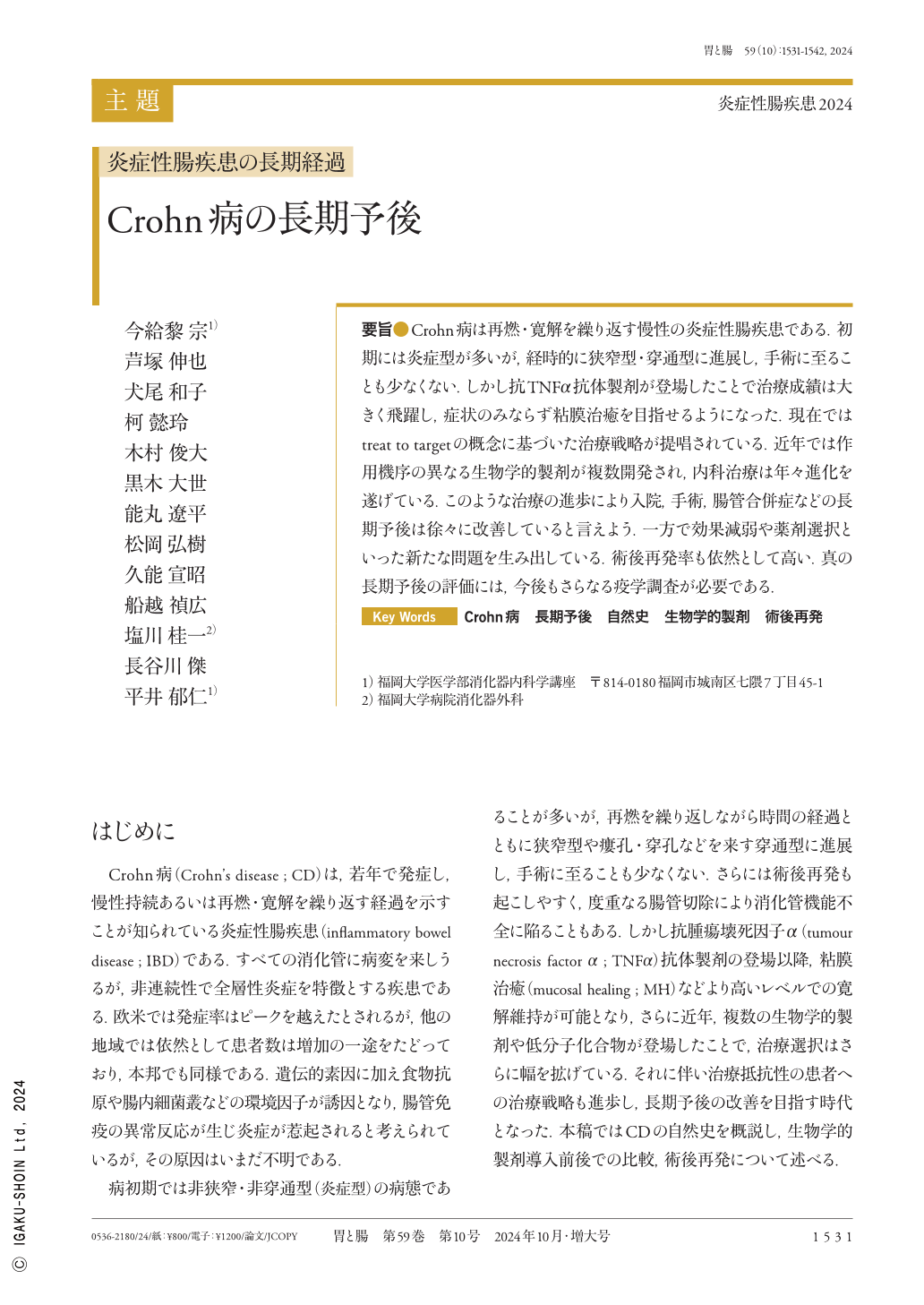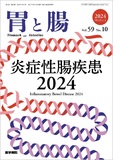Japanese
English
- 有料閲覧
- Abstract 文献概要
- 1ページ目 Look Inside
- 参考文献 Reference
要旨●Crohn病は再燃・寛解を繰り返す慢性の炎症性腸疾患である.初期には炎症型が多いが,経時的に狭窄型・穿通型に進展し,手術に至ることも少なくない.しかし抗TNFα抗体製剤が登場したことで治療成績は大きく飛躍し,症状のみならず粘膜治癒を目指せるようになった.現在ではtreat to targetの概念に基づいた治療戦略が提唱されている.近年では作用機序の異なる生物学的製剤が複数開発され,内科治療は年々進化を遂げている.このような治療の進歩により入院,手術,腸管合併症などの長期予後は徐々に改善していると言えよう.一方で効果減弱や薬剤選択といった新たな問題を生み出している.術後再発率も依然として高い.真の長期予後の評価には,今後もさらなる疫学調査が必要である.
Crohn's disease(CD)is a chronic inflammatory bowel disease with periods of recurrence and remissions. CD is often inflammatory in the early stages, but it progresses to stenotic and perforated forms over time, which often require surgery. The advent of anti-TNF-α antibody agents has greatly improved the treatment outcomes, and achieving mucosal healing and symptom resolution is now possible. Recently, target-based treatment strategies have been proposed for CD. Moreover, several biological agents with different mechanisms of action have been developed, and medical therapy has been evolving annually. These advances in treatment have gradually improved the long-term prognosis of patients with CD, including their hospitalization, surgery, and intestinal complications. However, new problems such as loss of response and drug selection have emerged, and the postoperative recurrence rates remain high. Further epidemiological studies are needed in the future to evaluate the long-term prognosis of patients with CD.

Copyright © 2024, Igaku-Shoin Ltd. All rights reserved.


